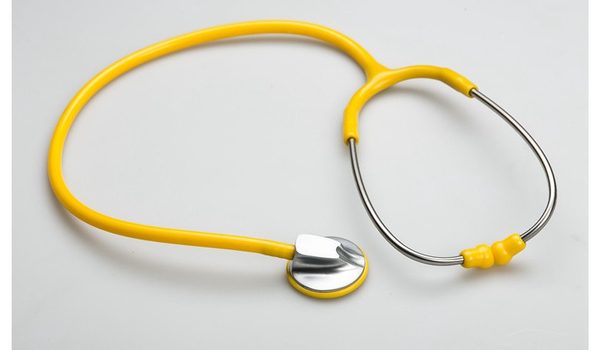

Maternal Health: PPP Critical To Equal Access To Quality Medicine – Says Nigeria’s FMoH
FeaturedNews April 28, 2022 Victor Onyeka-Ben

The Director of Reproductive Health, FMOH, Dr Kayode Afolabi, said this at a one-day stakeholder]s meeting on “Leveraging PPPs to Improve Access to Quality Maternal Medicines”, organised by Nigeria Health Watch in Abuja.
The organiser also restated their passion about improving discussions around the quality of care and quality of medicines in Nigeria.
According to Afolabi, there is need for an enabling policy environment to facilitate PPPs in ensuring equitable access to maternal medicines in Nigeria.
He said that it was vital for the country to leverage on PPPs to promote access to high-quality maternal health care.
“As a signatory to the Sustainable Development Goals (SDGs), existing maternal mortality rates must be reduced by 2030.
“If we can ensure access to quality maternal medicines, we will be reducing almost 50 per cent of these maternal deaths as postpartum hemorrhage and eclampsia contribute to over 40 per cent of preventable maternal deaths,” he said.
Afolabi said that accountability, transparency, and communication were fundamental for the PPPs to work well.
The Managing Director of Nigeria Health Watch, Mrs Vivianne Ihekweazu, said that maternal health is an issue that is closed to everyone’s heart in terms of maternal deaths across the country.
According to Ihekweazu, it is sometimes hard to believe that in spite of such high maternal deaths, there is not that heightened sense of urgency.
She said that people were looking to advocate for sustainable mechanisms that focused on the quality of the procurement of maternal medicines in the country.
She said that the importance of quality transcended everything in health care and impacted patient outcomes ultimately.
“We can’t achieve Universal Health Coverage(UHC), without access to quality medicines. Quality is critical to outcomes. 1.5 million people are dying from poor quality care than actual access to care,” she said.
Dr Chioma Ejekam, Consultant Public Health Physician, explained that 75 per cent of all maternal deaths were caused by obstetric bleeding, infections, or eclampsia.
Ejekam also said that it was saddening that consumers were mostly the victim of low-quality medicine as they were often unaware of the problem and so unable to seek redress.
She advised that to tackle the lack of access to quality medicines, the starting point should be knowledge across board – from the policymakers to the manufacturers to the health care workers and then the consumers.
Also, Dr Kay Adesola, President, Association of General Private Medical Practitioners in Nigeria, urged everybody to take the issue of equitable access to quality medicines seriously.
Adesola called for good regulatory mechanisms with penalties to curb the circulation of substandard medicines.
Ms. Azuka Okeke, the Chief Executive Officer of the Africa Resource Centre for Excellence in Supply Chain Management in Nigeria, said that the country needed to leverage the Pharmaceutical Manufacturers Group of the Manufacturers Association of Nigeria (PMG-MAN).
She said that the group provided what she referred to as an organised structure for local manufacturers and ensure the production of quality and affordable medicines.
According to Okeke, it is important to understand the language of both the public and private sectors to successfully bring them together to work and broker that trust for partnerships.
She said that the Public-Private partnerships must stem from trust and alignment of vision.
“You can’t guarantee the quality if you don’t know the source. To achieve UHC, we must engage local manufacturers and associations as a way to guarantee quality and accountability,” she said.
Dr Chibuzor Opara, the co-founder of Drugstoc, said that maternal health care was personal to him and his organisation.
He said: ‘”Some of the key things we try to solve are related to supply chain financing, health care commodities security. Nigeria has the worst cold chain infrastructure in Africa.
“Countries that have less than 10 per cent of our size have better cold chain infrastructure and this is related to a myriad of factors like poor investments, power supply, and transportation issues.”
Meanwhile, some experts in Nigeria are of the opinion that gaps in policies for medicine procurement contribute to the adverse outcomes of women when giving birth because they do not have access to quality, lifesaving medication.
They said that women in especially hard-to-reach communities were hardest hit when accessing quality healthcare and medicines.

